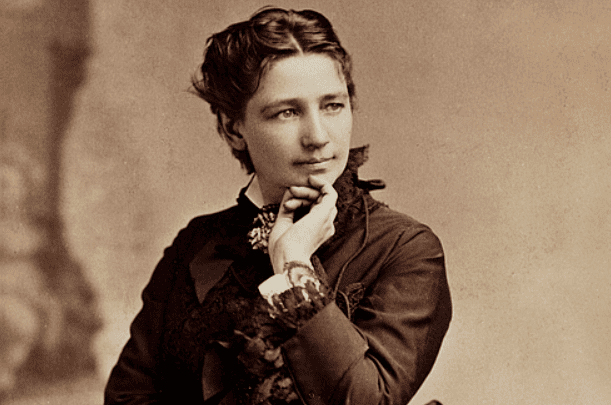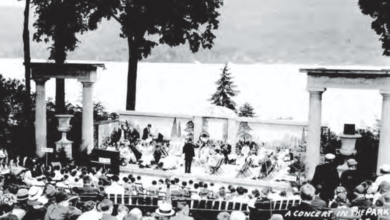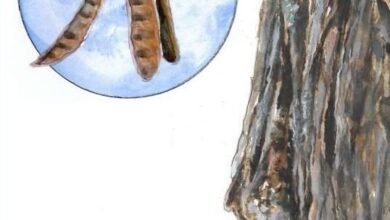#MeToo in 1872: On Beats and Hussies


 Early in 1872, a young woman named Emma Couch hurried along Bleecker Street on a mission. Bleecker was New York’s most bohemian thoroughfare. Stately mansions testified to the wealth and fashion formerly inhabiting its blocks. Now signs on their facades offered cheap lodgings and cheap meals.
Early in 1872, a young woman named Emma Couch hurried along Bleecker Street on a mission. Bleecker was New York’s most bohemian thoroughfare. Stately mansions testified to the wealth and fashion formerly inhabiting its blocks. Now signs on their facades offered cheap lodgings and cheap meals.
Despite its aging, the street lacked the weariness of Greene and Mercer running south, nor did it suffer the degeneracy of the Bowery, at which it ended. Rather, Bleecker had emerged from its fall from grace with the vibrancy of Paris.
On Bleecker, perversions became peccadilloes, decadence became indulgence. The artist met no reproach when he descended from his garret with face unshaven and clothes askew. The butterfly in the ballet bore no stain for pirouetting in her tutu.
A young woman gazing out her window could meet the glance of an admiring gentleman, inviting him to ring the bell. While its former aristocrats might cringe with horror that they had once called it home, Bleecker asked no questions.
Couch wanted no questions asked about her mission. Her preacher, the Reverend Abraham Carter of the Church of the Holy Savior, had directed her here. She had met Carter two years before when she moved to the city from Connecticut. She boarded at Mrs. Frost’s Young Ladies School.
She was smart and attractive, a perfect blonde with charming features and a demeanor marked by modesty and grace. Mrs. Frost hired her to tend infants at four dollars a week. She taught them the alphabet.
On Sundays Couch attended Reverend Carter’s services. One day he invited her into the vestry to procure religious books. In the privacy of that chamber, they had an affair, which moved to various houses of assignation.
Eventually Couch became pregnant. Upon hearing that news, Carter decided the children his wife was raising proved his manliness enough. He gave Couch $700, promised another $100 on the first of every month, and sent her to a physician.
On Bleecker, Couch hurried to meet her abortionist. Unfortunately, the doctor was not so kind and competent as the better providers of that then illegal service, in high demand with all other forms of birth control outlawed as well. Carter’s man was a quack, of which there were plenty in the neighborhood.
One was known to hook his pregnant patients to a galvanic battery and turn on the electricity. Couch wouldn’t let some such nut humbug her. She fled.
Friends who could overlook Couch’s loss of reputation offered refuge. Two were doctors whose wives and daughters cared for her, she wrote Carter near the end of February. She was not reassuring Carter about her safety, however.
You promised me a hundred dollars the first of the month, her letter said. I want the payment you missed in February and the one due in March, or else. As sure as there was a hell, if Carter preached another Sabbath in the church he’d defiled, she’d expose his sins to every member of his congregation and show his wife and children what he’d turned her into.
![]()
![]() A week into March the New York Herald reported a stir in the Tombs police court when Couch, looking demure in a velvet cloak and pearl-colored veil, appeared. The reporter peppered her with questions as she clung to the burly arm of criminal lawyer William Howe.
A week into March the New York Herald reported a stir in the Tombs police court when Couch, looking demure in a velvet cloak and pearl-colored veil, appeared. The reporter peppered her with questions as she clung to the burly arm of criminal lawyer William Howe.
Opposite her sat Reverend Carter, who was charging Couch with blackmail by threat of exposure. Every allegation in her letter, included in his affidavit to the court, was a lie he claimed. Carter knew the lady no more than any attendant at his church. If she knew the inside of his vestry, it was only because she called there to procure religious books.
The drama played out in the press through the first half of spring. A grand jury indicted Couch on fifteen counts. The New York Times convicted her without so much as an arraignment, claiming she admitted her accusations were false. Meanwhile other papers reported her great confidence that she could prove Carter’s guilt.
She stewed weeks in jail while lawyers argued over her arraignment and bail. As her case bounced from court to court, prominent parties grew anxious simply to get her out of the way. When bail was set in May, they got their wish. Couch posted $5,000 and disappeared from the city’s press.
Victoria Woodhull (1838-1927) watched the case unfold. As a suffragist and advocate of free love, she had long protested the social system that ruined a woman for the slightest indiscretion yet tolerated unbridled promiscuity among men. With Emma Couch locked behind bars, she weighed in on the pages of Woodhull & Claflin’s Weekly, the paper Woodhull published with her sister Tennie Claflin: MAGNIFICENT BEATS VS. MAGNIFICENT HUSSIES ran the headline.
The story cast Reverend Carter as the “Magnificent Beat,” an animal who preys upon women. A Beat might be a dandified scion of wealth, living at the best hotels and driving fast horses. Or a husband and father with a name recognized as a success in business who pursues his after-hours revels incognito. Or a churchman piously preaching to his congregation as his eye alights on a pretty face.
The dandy might kiss the cheek of a blushing damsel dreaming of a future filled with the love and tenderness of a faithful mate, then steal her maidenhead. The businessman might barter for the services of a desperate woman escaping starvation through a life of degradation, only to cheat her of the proffered reward. The churchman might lead a supplicant into temptation and cast her aside in sin.
As a worm turns when tread upon, the scorned women turn into Magnificent Hussies, the opposite pole of the Beats, resorting to blackmail when their base treatment converts their love to hate. Society does not condemn the man; the law does not convict him. But the woman suffers public shame; the law offers no leniency. She has no choice but the crude justice of blackmail.

 Woodhull was not condoning blackmail. Too many times the perpetrator of a fraud had tried to buy her silence, and when she refused, accused her of extortion and slandered her as an immoral woman. She had stood her ground. Never had she wielded secrets for money, and she swore she never would.
Woodhull was not condoning blackmail. Too many times the perpetrator of a fraud had tried to buy her silence, and when she refused, accused her of extortion and slandered her as an immoral woman. She had stood her ground. Never had she wielded secrets for money, and she swore she never would.
Nor had she exposed personalities. As others blackened her name for asserting every man and woman’s right to love whomever they chose, she had decried their hypocrisy in tolerating in others the practices they denounced her for preaching. She had gone so far as to insinuate scandals they would surely recognize, such as the “awful and herculean efforts to suppress the most terrific scandal in a neighboring city.”
The city was Brooklyn and few in the Heights overlooking Manhattan mistook her reference to their community’s most precious asset, the Reverend Henry Ward Beecher, who practiced exactly what they denounced her for preaching.
But naming a name and the sins that name practiced, that she had resisted. She would resist no longer with the Magnificent Beats. Away with the nonsense of protecting personalities, she wrote. Strip away the masks of these night prowlers who cry blackmail to cover their own scoundrelism. “Have you been deceived, maltreated, abandoned?” she asked those of her sex.
Send her the scoundrels and their black deeds so Woodhull & Claflin’s Weekly could broadcast them throughout the land. Like Cain, let a Beat’s infamy follow wherever he goes, that his shame
might deter others from like acts.
This essay was adapted from A Dirty Year: Sex, Suffrage, and Scandal in Gilded Age New York.
Illustrations, from above: New York Times headline accusing Emma Couch of blackmail, March 8, 1872; Woodhull & Claflin’s Weekly headlines Couch’s story “Magnificent Beats and Magnificent Hussies,” April 6, 1872; and Victoria Woodhull photo by Matthew Brady, ca. 1860.
Source link




